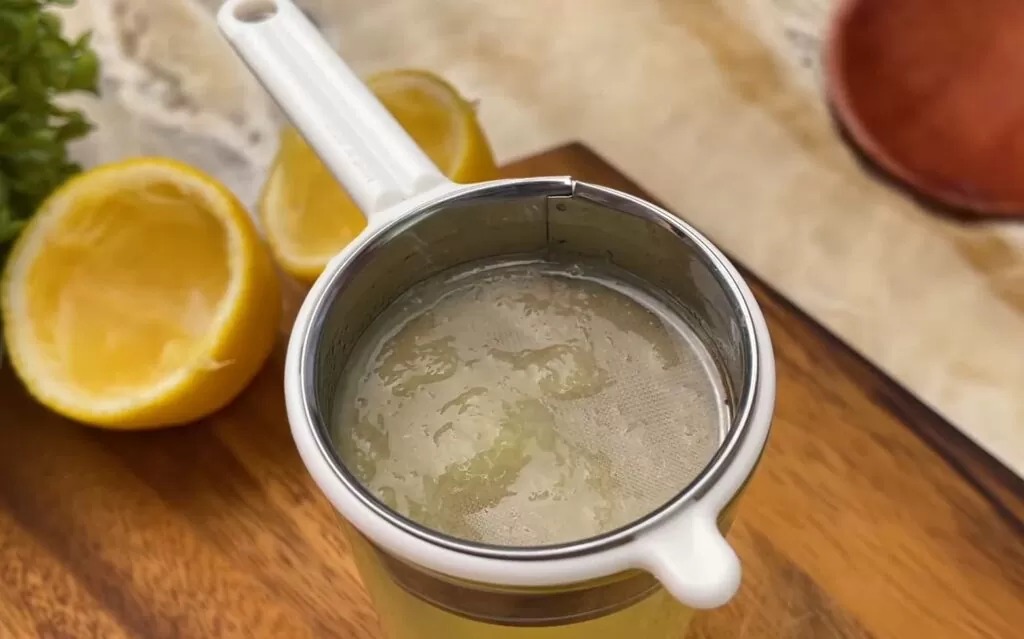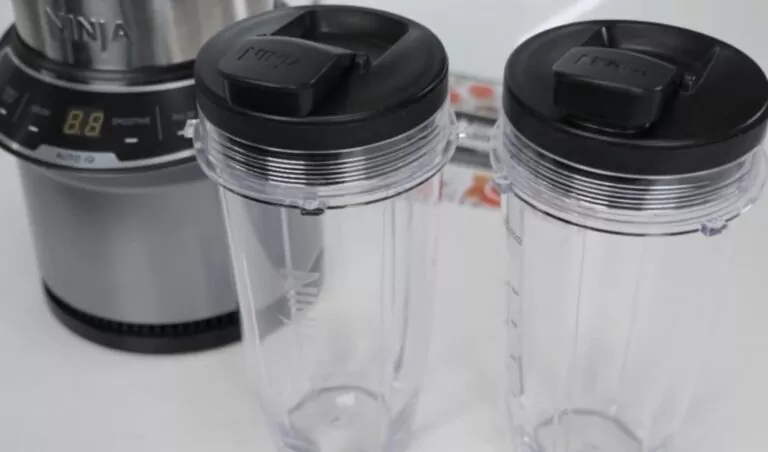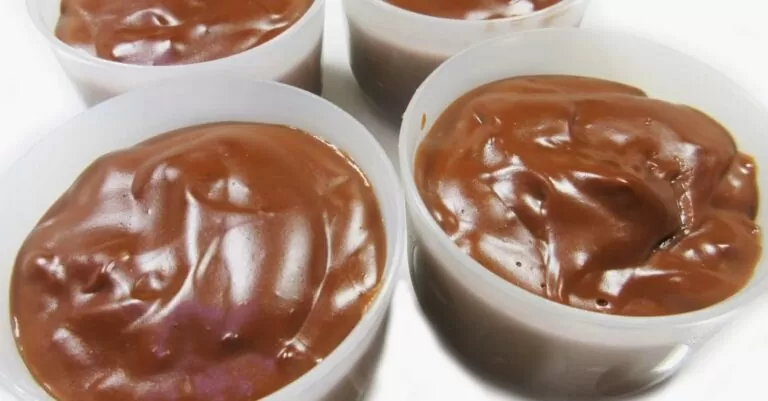Can You Mix Lemon Juice With Yogurt?
Yogurt and lemon juice – what a tangy combination! This unlikely pairing is sparking curiosity in kitchens everywhere. The acidic brightness of lemon and yogurt’s creamy tartness seem destined for each other. But can these two ingredients come together harmoniously? Will they curdle and separate or swirl into a luscious, lemon-kissed treat? Let’s explore the science and artistry behind uniting yogurt and lemon. Discover what happens when citrus cuts through milk proteins. We’ll break down methods for blending these contrasting flavors and textures. Get ready to unleash new possibilities with yogurt and lemon juice as we unravel the secrets of mixing sour with sour. This zesty duo could become your next go-to blend!
Quick Summary
Yes, you can mix lemon juice with yogurt, but there are a few things to remember. The acidic lemon juice can cause the proteins in yogurt to curdle or separate. To prevent this, mix in just a small amount of lemon juice – no more than a teaspoon per cup of yogurt. Stir it in gently to evenly distribute the flavor. Greek or strained yogurt is best, as it will break down slowly. Add the lemon juice to cold yogurt rather than room-temperature yogurt for optimal results. The bright, tangy flavor will come through without ruining the yogurt’s texture. So go ahead – mix in a touch of lemon and enjoy your yogurt’s new zing!

Effect of Lemon Juice on Yogurt
Yogurt is a nutritious dairy product obtained by the fermentation of milk. It has a creamy, rich taste and texture. Sometimes, lemon juice is added to yogurt to give it a tangy, refreshing flavor. However, lemon juice can cause yogurt to curdle due to its acidic nature.
Studies on the Effect of Lemon Juice on Yogurt
Several studies have analyzed what happens when lemon juice is mixed with yogurt. A paper published in the International Journal of Dairy Technology showed that adding 1% lemon juice to yogurt samples caused significant viscosity reduction and increased whey separation. This indicated protein coagulation and curdling. Lower pH levels from citric acid were found to correlate with increased curd formation directly.
Another study in the Journal of Food Processing and Preservation examined adding different citrus juices to yogurt. Lemon juice produced the highest amount of precipitation and curdling. Microscopic evaluation showed significant casein micelle destabilization. Researchers concluded lemon juice should be avoided as a yogurt flavoring if minimal texture change is desired.
A study in Food Chemistry found yogurt experienced decreased viscosity and increased water separation when pH was reduced from 4.6 to 3.6 by adding lemon juice. More than 5% lemon juice resulted in yogurt gels that were destroyed. Even a 1% addition caused notable damage. The results demonstrate yogurt’s sensitivity to acidic ingredients.
Addition of Lemon Juice to Soy Yogurt
Since soy yogurt utilizes different proteins than dairy, researchers have explored whether soy yogurt withstands lemon juice better.
One study in the Journal of Food Science discovered that soy yogurt exhibited lower consistency and increased whey separation when added lemon juice, like dairy yogurt. However, soy yogurt was found to be slightly more stable at higher lemon juice concentrations. Microstructure analysis revealed less protein aggregation in soy yogurt with up to 5% lemon juice.
An article in Food Chemistry similarly found soy yogurt had better texture retention at low pH compared to dairy yogurt. However, excessive acidification still weakens protein interactions. Thus, the study advised keeping lemon juice under 3% when flavoring soy yogurt.
Addition of Acidulant to Yogurt Mix for Fermentation
When making yogurt, lemon juice, and other acidulants are sometimes mixed into the yogurt base before fermenting. This helps achieve a target tartness.
Research in LWT – Food Science and Technology showed yogurt made by adding lemon juice before fermentation had poorer coagulation and texture than control with no lemon juice. Prior lemon juice incorporation was found to hinder starter culture activity.
Conversely, a Food Science and Technology Research study determined yogurt made with lemon juice added before fermentation exhibited similar viscosity, acidity, and sensory characteristics as yogurt acidified post-fermentation. Yet protein content was still somewhat reduced.
Research shows that lemon juice can significantly damage yogurt’s structure and quality. Small amounts may be acceptable, but lemon juice must be carefully mixed with yogurt. Further exploration is needed to determine ideal lemon juice concentrations and applications for different yogurt types.

How Lemon Juice Curdles Milk
Milk is an emulsion of fat globules and casein micelles dispersed in watery whey. The proteins give milk its white opacity and smooth texture. However, acids can curdle milk by unraveling these proteins and causing them to clump together. Lemon juice, particularly, is very effective at curdling milk due to its acidic nature.
Explanation of the Curdling Process
Fresh milk maintains a near-neutral pH of around 6.7. Casein and whey proteins are stable in this environment. Lemon juice has a very low pH, around 2-3, due to citric and ascorbic acids. This high acidity acidic shifts milk toward the isoelectric point of its proteins, around 4.6.
At the isoelectric point, the electrical charge on proteins is neutralized. This exposes more hydrophobic regions, causing proteins to tangle together or coagulate. The clumped proteins form solid curds, while the whey separates into a thin liquid. Coagulated casein proteins make up the curd lumps. Whey proteins remain soluble, but the emulsion is disrupted, so they leak out during curdling.
The more lemon juice added, the more extensive the curdling. A few drops can cause slight thickening, while more lemon juice can fully curdle milk into cheese-like curds swimming in whey. The low pH denatures proteins and triggers curd coagulation.
Use of Lemon Juice in Yogurt and Cheese Making
In making yogurt, lemon juice can be added along with starter cultures to help milk ferment and acidify. The yogurt curdles due to both the acids produced by bacteria and the lemon juice. This helps create yogurt’s semisolid texture. However, care must be taken because excess lemon may over-curdle the yogurt.
For cheesemaking, lemon juice is sometimes used as a coagulant instead of a rennet. Its high acidity causes the proteins to curdle and solidify like rennet does. 1-4 tablespoons of lemon juice per gallon of milk is typically sufficient to curdle the milk and allow the collection of the curds thoroughly. The curds are then processed further into cheese.
In summary, lemon juice can effectively curdle milk due to its acidic impact on proteins. The low pH alters the proteins’ structures, causing them to tangle together into curds surrounded by thin whey. Harnessing this curdling action allows lemon juice to produce yogurt, cheese, and other coagulated dairy products. The powerful acidity of lemons makes them an ideal coagulating agent for curdling milk.
Lemon Juice and Yogurt Recipes
Yogurt and lemon juice can make an unexpectedly delicious pairing. The tangy brightness of lemon balances the creamy tartness of yogurt. When combined properly, they blend into recipes that showcase both ingredients. Here, we’ll explore recipes featuring lemon juice and yogurt and tips for successfully using them together.
Recipes that Use Lemon Juice and Yogurt
Yogurt lemon drizzle cake – This light cake is topped with a yogurt-lemon glaze. The glaze is made by mixing 1⁄4 cup lemon juice and 1⁄4 cup plain Greek yogurt. The thick yogurt helps prevent curdling. For the cake, yogurt gives moisture, while lemon lends a zesty note.
Lemon yogurt loaf – Slices of moist lemon bread are swirled with yogurt lemon curd. The curd contains yogurt for texture and stability. Recipes recommend whole milk Greek yogurt. Lemon juice is added gradually to the curd. The bread bakes up with a beautiful swirled pattern.
Lemon yogurt fish – Fish fillets are coated with a yogurt marinade spiked with lemon juice and herbs. The yogurt helps tenderize the fish, while the lemon provides flavor. Baking avoids excess curdling from the lemon. The tangy coating gives the fish lots of summery lemon-yogurt flavor.
Lemon yogurt ice pops – These frozen yogurt pops get lemon tang from juice and zest. The yogurt creates a rich, smooth base. For the best texture, use a high-fat Greek yogurt. Combined with sweetened lemon juice, it makes pops that are tart and refreshing.
Lemon yogurt dip – This easy blender dip combines lemon juice and Greek yogurt with herbs, garlic, and olive oil. Using thick Greek yogurt prevents the lemon juice from curdling the dip. Chilled and creamy, it’s great with vegetables and bread.

Tips for Using Lemon Juice and Yogurt Together
- Add lemon juice gradually – Don’t dump it all in at once to prevent rapid excessive curdling
- Mix in no more than 1 tsp juice per 1 cup yogurt – This ratio avoids major curdling
- Use Greek or strained yogurt – The higher protein content resists curdling better
- Make sure yogurt is chilled – Warmer temperatures increase curdling
- Stir thoroughly but gently – Vigorous mixing encourages more curdling
- Blend yogurt and juice – Thorough incorporation allows even distribution of acidity
With proper technique, yogurt and lemon juice combine into winning recipes like glazed cakes, swirled bread, zesty dips, and more. The key is balancing their amounts and textures. Following simple guidelines, you can create delicious blends using yogurt’s creamy body and lemon’s vibrant acidity.
FAQ
What does curdled yogurt taste and look like? Is it safe to eat?
Curdled yogurt is lumpy, watery, and slightly grainy in texture with a tart, lemony flavor. The curds are white or yellow clumps surrounded by thin, milky whey that separates. It may resemble cottage cheese or ricotta. While curdled yogurt doesn’t look appetizing, it’s still safe. The texture and mouthfeel are unpleasant, however. Eating curdled yogurt won’t make you sick, but you may wish to avoid it based on taste preference.
Related Video: Lemon Curd
Conclusion
Ultimately, the answer is a qualified yes – you can successfully add lemon juice to yogurt with the right technique. Moderation and gentle mixing are key to preventing excessive curdling from the lemon’s acidity. Choosing thick, Greek-style yogurt provides the most stable base. Keeping the yogurt chilled helps, too. With a light hand and the right yogurt, you can stir in some lemon juice to enjoy its bright flavor. Just don’t overdo it! Ultimately, yogurt and lemon juice can come together deliciously. A splash of citrus can liven up your yogurt without ruining its texture completely. So go ahead – experiment with a touch of tangy lemon to give your yogurt an exciting new twist!







